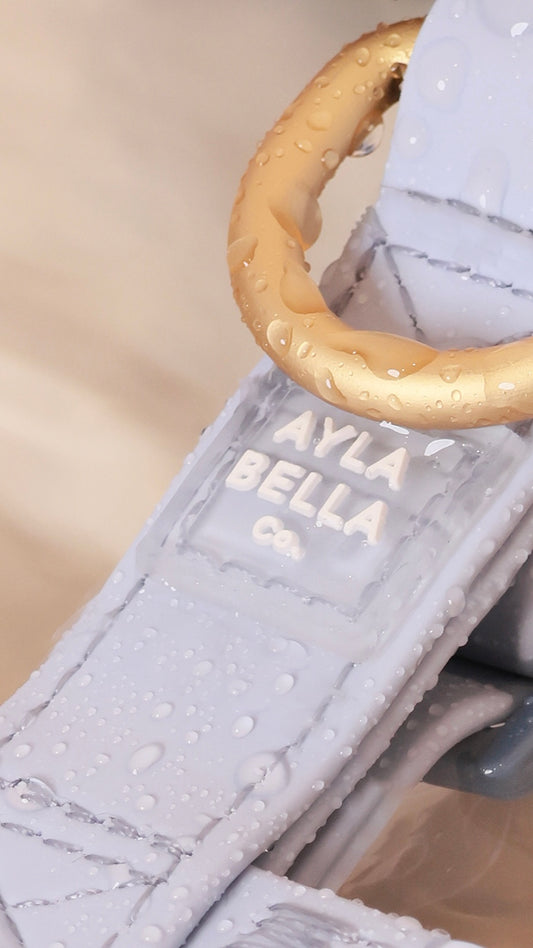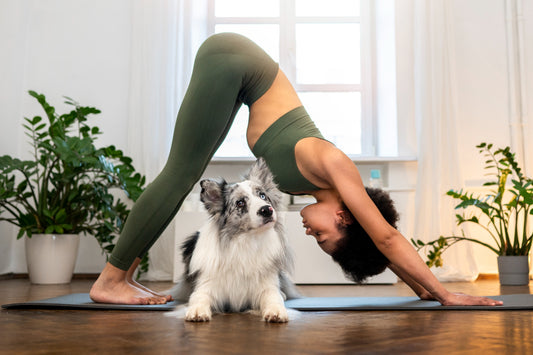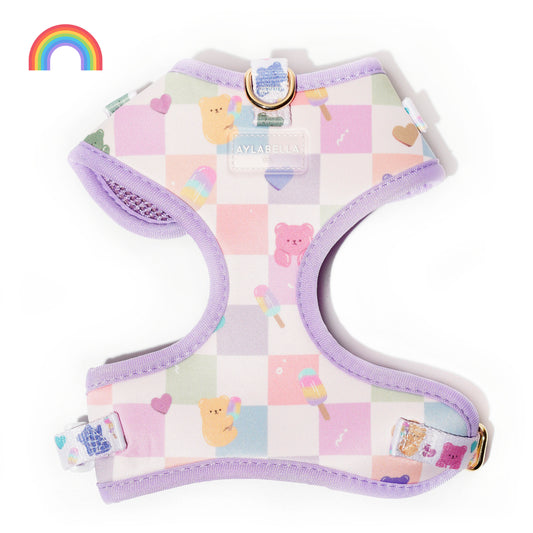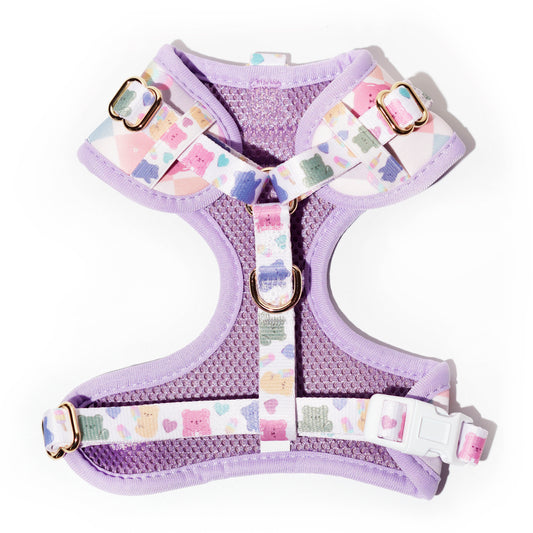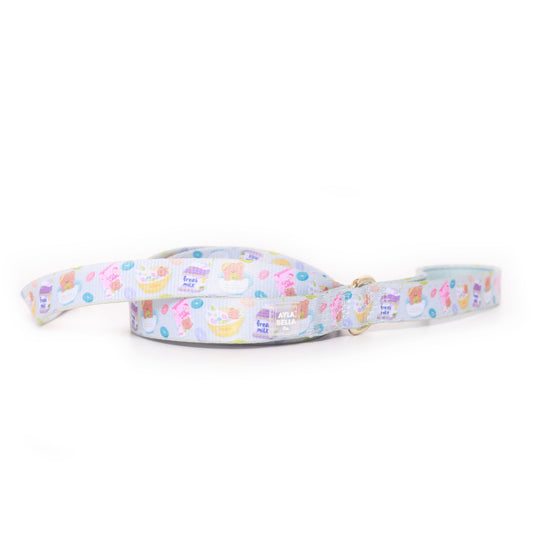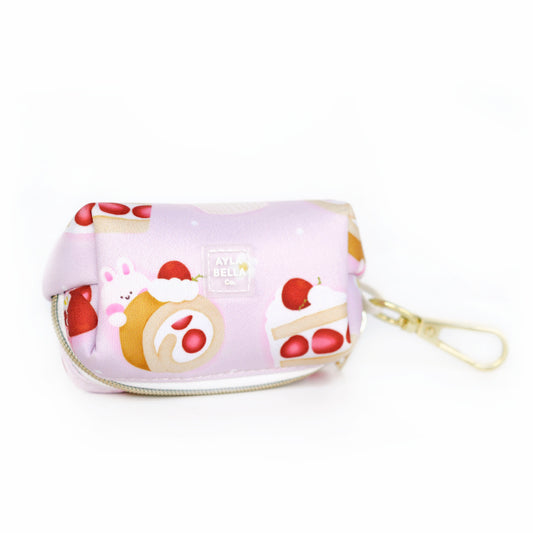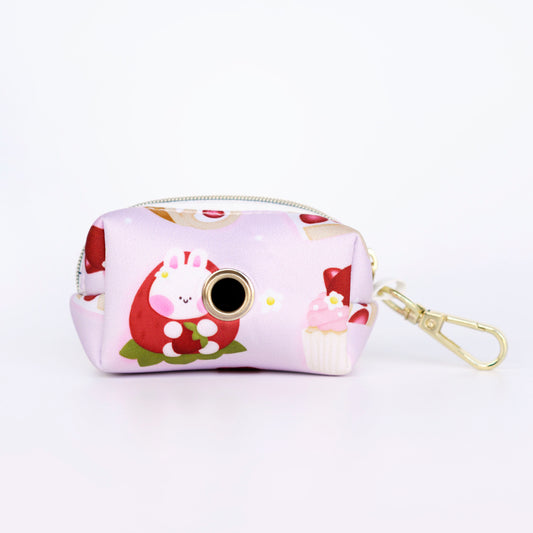Dogs are more than just pets; they're members of our family. As responsible dog owners, it's our duty to ensure that our furry friends are healthy and happy. However, many people are unaware of the simple steps they can take to keep their dogs in good health. In this blog post, we'll explore 10 tips for keeping your dog healthy and happy.
- Regular Vet Check-Ups
Regular check-ups are crucial for maintaining your dog's health. According to the American Veterinary Medical Association (AVMA), dogs should visit the vet at least once a year for a wellness exam. During these exams, the vet will check your dog's weight, teeth, ears, eyes, and overall physical health. They may also recommend additional tests or screenings based on your dog's breed and age. Regular check-ups can catch health problems early, making them easier and less expensive to treat. They can also help prevent serious health issues in the future.

Photo Credits: https://be.chewy.com/what-to-expect-at-puppys-first-vet-visit/
- A Balanced Diet
A balanced diet is essential for your dog's health. According to the Association of American Feed Control Officials (AAFCO), a balanced diet for dogs should contain protein, fat, carbohydrates, vitamins, and minerals. The amount of each nutrient your dog needs will depend on their breed, age, and activity level. Consult with your vet on the best diet plan for your dog, and avoid feeding them table scraps or unhealthy treats. These can lead to obesity and other health problems. Here’s the breakdown on what comprises a balanced diet for your fur baby:
-
Protein: Protein is essential for building and repairing tissues in a dog's body. It's important to ensure that your dog's diet contains high-quality sources of protein, such as meat, fish, eggs, and dairy. The amount of protein your dog needs will depend on their age, weight, and activity level. According to the AAFCO, adult dogs should have a minimum of 18% crude protein in their diet, while puppies and lactating dogs require more.
-
Fat: Fat is an essential nutrient that provides energy and helps with nutrient absorption. However, too much fat in a dog's diet can lead to obesity and other health problems. The AAFCO recommends a minimum of 5.5% crude fat in adult dog food, but the appropriate amount will depend on your dog's individual needs.
-
Carbohydrates: Carbohydrates provide energy and fiber in a dog's diet. However, some dogs may have difficulty digesting certain carbohydrates, such as grains. It's important to choose high-quality sources of carbohydrates, such as sweet potatoes, peas, and lentils. The appropriate amount of carbohydrates in a dog's diet will depend on their individual needs.
-
Vitamins and minerals: Dogs require a variety of vitamins and minerals for their overall health and well-being. These can be obtained through a balanced diet or through supplements. However, it's important to consult with your veterinarian before giving your dog any supplements, as some can be harmful in large amounts.

Photo Credits: https://www.purina-arabia.com/articles/dogs/feeding/guides/dog-nutrition-guide
- Exercise
Regular exercise is vital for your dog's physical and mental well-being. According to the AVMA, dogs should engage in at least 30 minutes of physical activity each day. This can include walks, runs, playing fetch, or other interactive activities. Regular exercise can help maintain your dog's weight, reduce stress, and prevent behavior problems. Here are some suggestions for pet owners in Singapore to ensure their dogs get the recommended 30 minutes of daily exercise:
-
Take your dog for a walk: Walking is a simple and effective way to provide your dog with exercise. You can take your dog for a walk around the neighborhood or at a local park. In Singapore, there are many parks and green spaces where dogs are allowed on-leash, such as East Coast Park, Bishan-Ang Mo Kio Park, and West Coast Park.
-
Play fetch: Many dogs enjoy playing fetch, and it's a great way to provide them with exercise. You can play fetch with your dog in a fenced yard, at a local park, or on a beach. Be sure to use a ball or toy that is safe for your dog to play with.
-
Agility training: If your dog is active and likes to jump and climb, agility training can be a fun way to provide exercise. There are several agility training centers in Singapore that offer classes and equipment for dogs to jump, climb, and run through obstacles.
-
Swimming: Swimming is a low-impact exercise that can be great for dogs with joint problems or mobility issues. Singapore has several dog-friendly beaches and swimming pools where dogs are allowed to swim.

Photo Credits: https://www.fitbark.com/blog/10-fun-ways-to-exercise-your-dog
5. Proper Rest
Dogs need plenty of rest to recharge their batteries. According to the National Sleep Foundation, dogs sleep an average of 12-14 hours a day. Ensure your dog has a comfortable bed in a quiet area of the house, away from any disturbances. Encourage them to rest after exercise or play.

Photo Credits: https://www.sleepfoundation.org/animals-and-sleep/how-much-do-dogs-sleep
6. Preventative Measures
Preventative measures such as vaccinations, flea and tick prevention, and heartworm medication can help keep your dog healthy and prevent serious health issues. According to the AVMA, dogs should receive core vaccinations against rabies, distemper, parvovirus, and adenovirus. Flea and tick prevention can help prevent the spread of diseases such as Lyme disease, while heartworm medication can prevent potentially fatal heartworm disease.
7. Playtime
Playtime is essential for your dog's mental health and well-being. According to the AVMA, playtime can help reduce stress and prevent behavior problems. Engage in interactive playtime with your dog, such as playing fetch or hide-and-seek. This not only keeps your dog happy but also strengthens your bond with them.

Photo Credits: https://yourpetandyou.elanco.com/us/lifestyle/what-is-your-dogs-play-style
7. Socialization
Socialization is essential for your dog's emotional and mental health. According to the AVMA, socialization can help prevent behavior problems and make your dog more comfortable in new environments. Introduce your dog to other dogs and people, and allow them to interact with their surroundings. This will help them feel comfortable in new environments and prevent anxiety.

Photo Credits: https://be.chewy.com/socializing-an-older-dog/
8. Love and Affection
Lastly, don't forget to show your dog plenty of love and affection. A happy dog is a well-loved dog, and your love and attention can go a long way in keeping them healthy and happy. Spend time with your dog, cuddle with them, and show them plenty of affection. This can help reduce stress, prevent behavior problems, and strengthen your bond with your furry friend.
Sources:
- American Veterinary Medical Association. (n.d.). Senior Pet Care FAQs. https://www.avma.org/resources/pet-owners/petcare/senior-pet-care-faqs
- Association of American Feed Control Officials. (n.d.). Pet Food and Feeding. https://www.aaf



